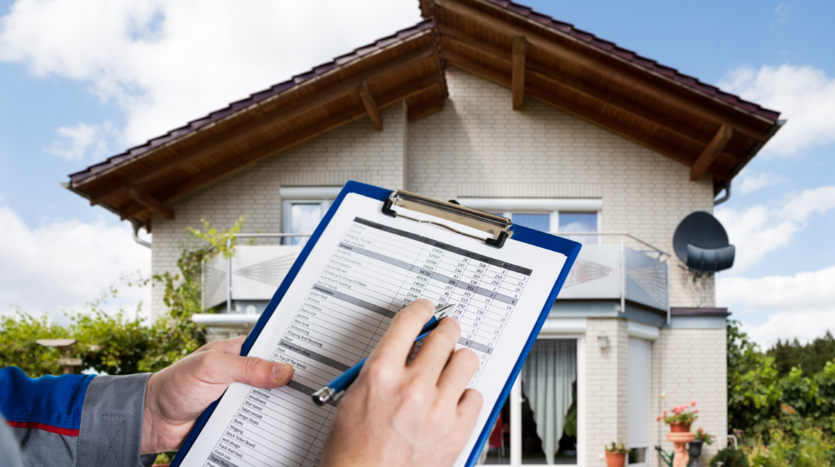How to Conduct Effective Property Inspections in Phuket
Are you a property owner in Phuket, or perhaps you’re considering purchasing a property on this beautiful island? Property inspections might not be the most glamorous part of property ownership, but they’re essential for keeping your investment in top shape and protecting its long-term value. From routine maintenance to tenant turnovers, effective property inspections are the cornerstone of successful property management.
In this guide, we’ll walk you through everything you need to know about conducting thorough property inspections in Phuket. Whether you’re working with a Property Management Phuket team or tackling inspections yourself, these tips will ensure you’re well-prepared. Let’s dive in!
Why Are Property Inspections Important?
Regular property inspections offer numerous benefits to owners. They help maintain the property’s condition, ensure tenant compliance, and provide peace of mind by identifying potential issues early. In a tropical environment like Phuket, where the climate can be harsh, regular inspections are even more critical.
Benefits of Property Inspections:
- Preventative Maintenance – Early detection of issues like water damage or pest infestations can save you thousands in repairs.
- Tenant Accountability – Ensuring tenants respect the property and follow agreed-upon guidelines.
- Investment Protection – Protecting your asset’s value and ensuring it remains attractive to future tenants or buyers.
- Insurance Compliance – Regular inspections can help you meet insurance requirements, minimizing your risk.
If you’re managing a property in Phuket, consider working with an experienced Property Management Company Thailand like Inter Property Phuket, which specializes in the local market and knows exactly what to look for in inspections.
Types of Property Inspections to Conduct
For effective property management in Phuket, it’s helpful to break down inspections into different types. Each type has a unique purpose and timing, and together they ensure comprehensive care of your property.
1. Move-In Inspection
A move-in inspection is done before a new tenant occupies the property. This inspection documents the property’s condition, creating a baseline for comparison during future inspections.
What to Check:
- Condition of floors, walls, and fixtures
- Functionality of appliances and HVAC systems
- Presence of mold, dampness, or pest issues
- Photographs for detailed records
2. Routine Inspection
Routine inspections, typically conducted every three to six months, allow you to monitor the property’s ongoing condition. These inspections focus on preventive maintenance and tenant compliance with property rules.
Key Areas to Inspect:
- Plumbing for leaks or blockages
- Electrical outlets and appliances for safety
- Any signs of wear and tear
- Outdoor areas like pools and landscaping
Routine inspections can be easily handled by a professional team, such as Inter Property Phuket, which provides premier property management services in Phuket. Their team knows how to handle tropical weather impacts on properties.
3. Move-Out Inspection
The move-out inspection compares the property’s current state to the condition documented during the move-in inspection. This inspection helps you determine if any damages occurred during the tenant’s stay, allowing you to calculate deductions from the security deposit if needed.
Move-Out Checklist:
- Evaluate damages beyond normal wear and tear
- Check for missing items or alterations without permission
- Review cleanliness and orderliness of the unit
- Inspect outdoor areas for signs of misuse
4. Seasonal Inspection
Phuket’s monsoon season and high humidity levels can wreak havoc on properties. Seasonal inspections, especially before and after the rainy season, are essential for detecting issues caused by weather extremes.
Focus Areas for Seasonal Inspections:
- Roofing and gutters for leaks or blockages
- Mold or mildew in damp areas
- Pest infestations due to high humidity
- Structural damage from storms

Step-by-Step Guide to Conducting a Property Inspection
Whether you’re inspecting a condo, villa, or rental property in Phuket, following a consistent inspection process ensures nothing is overlooked.
Step 1: Plan Ahead
Arrange the inspection with tenants well in advance, especially if it’s a routine or seasonal check. Give them at least 24 hours’ notice and remind them of any maintenance requirements they’re responsible for.
Step 2: Use a Checklist
A thorough inspection requires a checklist to avoid missing key areas. Categories to include:
- Interior walls, floors, and ceilings
- Kitchen appliances and plumbing
- Bathroom fixtures and mold prevention
- Exterior spaces, gardens, and pool areas
Step 3: Document Everything
Take photos or videos to record the condition of various parts of the property. This documentation is valuable for comparisons during future inspections and can serve as proof if there are disputes about damages.
Step 4: Check Compliance with Lease Terms
Verify that the tenant is complying with lease terms, such as no unauthorized pets, no smoking indoors, and any other rules specific to your property.
Step 5: Follow Up on Maintenance Issues
Address any issues you found during the inspection promptly. Prompt repairs can prevent small issues from escalating into costly problems.
Spotlight on Inter Property Phuket
If you’re looking for a reputable partner to handle property management in Phuket, consider Inter Property Phuket. Known for their comprehensive services, Inter Property Phuket excels in everything from inspections and maintenance to tenant relations and rental yield optimization. With their local expertise, they’re well-equipped to handle Phuket’s unique property challenges, ensuring your investment is in capable hands.
Their services include:
- Regular property inspections
- Detailed maintenance reports
- Efficient tenant management
- Premier marketing for rental properties
- Monthly net income guarantees for property investments (learn more about guaranteed income here)

Common Property Inspection Issues in Phuket
Living in a tropical paradise has its challenges. Here are some common issues property owners face in Phuket and how regular inspections can help:
- Mold and Mildew: High humidity leads to mold growth, particularly in bathrooms and kitchens.
- Pest Infestations: Ants, termites, and cockroaches are frequent visitors in tropical climates.
- Weather Damage: Heavy rains and high winds can damage roofs and outdoor areas.
- Corrosion: Salt in the air from the nearby ocean accelerates rust on metal fixtures.
Regular property inspections are your first line of defense against these issues, ensuring small problems don’t turn into costly repairs.
FAQs on Property Inspections in Phuket
- How often should I conduct property inspections?
Every three to six months is recommended, with additional inspections before and after the rainy season. - Can I inspect the property without informing tenants?
No, you should always give tenants at least 24 hours’ notice for inspections. - What’s the difference between a move-in and move-out inspection?
A move-in inspection documents the property’s condition before a tenant moves in, while a move-out inspection checks for any damage after the tenant leaves. - Why are seasonal inspections important in Phuket?
Phuket’s tropical climate can cause issues like mold and roof leaks, making seasonal inspections essential. - What should I look for in a property management company?
Look for local expertise, comprehensive services, and good reviews. Inter Property Phuket is a top choice. - How do I handle tenant-caused damage?
Document the damage during the move-out inspection and deduct from the security deposit if it’s beyond normal wear and tear. - Can a property management company handle all inspections?
Yes, a good property management company will handle all inspections, maintenance, and tenant relations for you. - Do I need to inspect short-term rental properties?
Yes, even short-term rentals benefit from regular inspections, especially if they’re in high turnover. - What should I do if I find mold?
Address it immediately by cleaning and improving ventilation. Regular mold checks should be part of every inspection. - How can I improve rental yields on my property?
Regular maintenance and effective marketing can help boost rental yields. Check out these strategies for maximizing rental income.
By conducting thorough inspections and addressing issues proactively, you’ll keep your Phuket property in prime condition, ensuring tenant satisfaction and safeguarding your investment for years to come.
For more guidance on property management or purchasing in Phuket, explore our property buying guide or check out our listings of villas for sale in Phuket.





